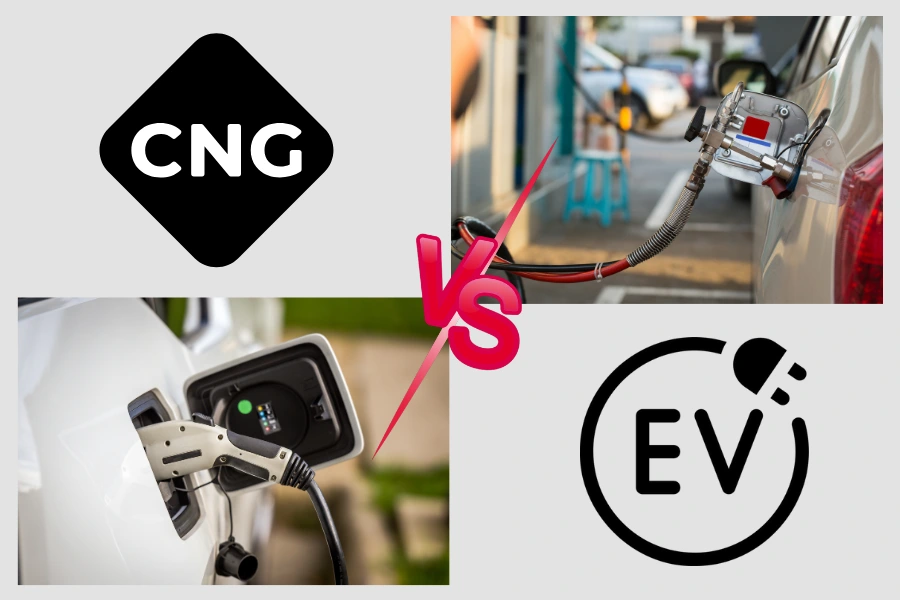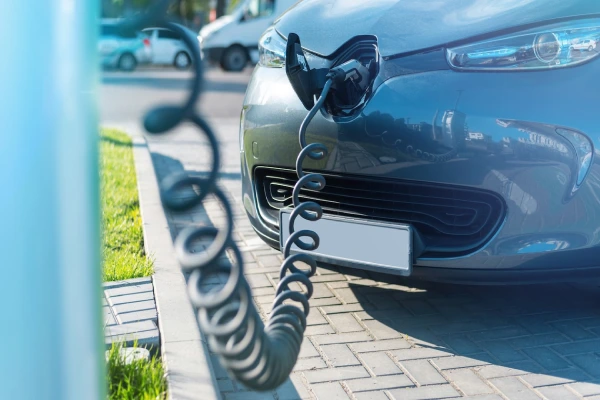-

-
-
Phone No. 9811893833
-
Address New Delhi 110045
-





In today's world, where climate change is a pressing concern, finding greener alternatives for everyday activities has become more important than ever. One significant aspect of this shift towards sustainability is the choice of fuel for our vehicles. With traditional gasoline-powered cars contributing to air pollution and greenhouse gas emissions, many drivers are now considering cleaner options like Compressed Natural Gas (CNG) and Electric Vehicles (EVs). In this article, we'll explore the differences between CNG and electric cars, their advantages and disadvantages, and help you make an informed decision about which one might be the right choice for you.
Compressed Natural Gas, or CNG, is a fuel alternative that's gaining popularity due to its lower emissions compared to gasoline. It's composed primarily of methane gas, extracted from natural gas wells or as a byproduct of oil extraction. CNG is stored in high-pressure cylinders and is used to power specially designed vehicles or those that have been converted to run on it.
Reduced Emissions: CNG produces fewer harmful emissions compared to gasoline, making it a cleaner choice for the environment. It emits lower levels of carbon dioxide (CO2) and virtually no particulate matter, which can help improve air quality.
Electric vehicles, or EVs, have gained considerable attention in recent years as a promising solution to reduce greenhouse gas emissions and dependence on fossil fuels. These vehicles are powered by electric motors and store energy in rechargeable batteries, eliminating the need for traditional combustion engines.


When deciding between CNG and electric vehicles, there are several factors to consider, including your driving habits, access to refueling or charging infrastructure, environmental priorities, and budget.
If you're primarily concerned with reducing emissions and have access to CNG refueling stations in your area, a CNG vehicle could be a suitable option. However, if you're looking for a zero-emission solution with lower long-term operating costs and are willing to invest in charging infrastructure or have access to it already, an electric vehicle might be the better choice.
Ultimately, both CNG and electric vehicles offer greener alternatives to traditional gasoline-powered cars, and the right choice for you will depend on your individual needs and priorities. As technology continues to evolve and infrastructure improves, the future of transportation is looking cleaner and more sustainable than ever before.
In the quest for greener transportation options, CNG and electric vehicles stand out as promising alternatives to traditional gasoline-powered cars. While each has its own set of advantages and disadvantages, both contribute to reducing emissions and mitigating the environmental impact of personal transportation.
Whether you opt for the convenience of CNG or the zero-emission capabilities of an electric vehicle, making the switch to a cleaner alternative can have a positive impact on the planet and future generations. By understanding the differences between these green alternatives and considering your own driving needs and circumstances, you can make an informed decision that aligns with your values and priorities.
Start by entering the total loan amount you require to purchase your dream car. This includes the vehicle's purchase price, taxes, and any additional fees or charges associated with the loan.
+91 9811893833
dreamCarfinance11@gmail.com
apply@dreamcarsfinance.com
query@dreamcarsfinance.com
servicerequest@dreamcarsfinance.com
New Delhi 110045
Copyright © 2023 Your contact details are protected with us and owned by Tact Wise Advisory. Designed By Seo To Webdesign